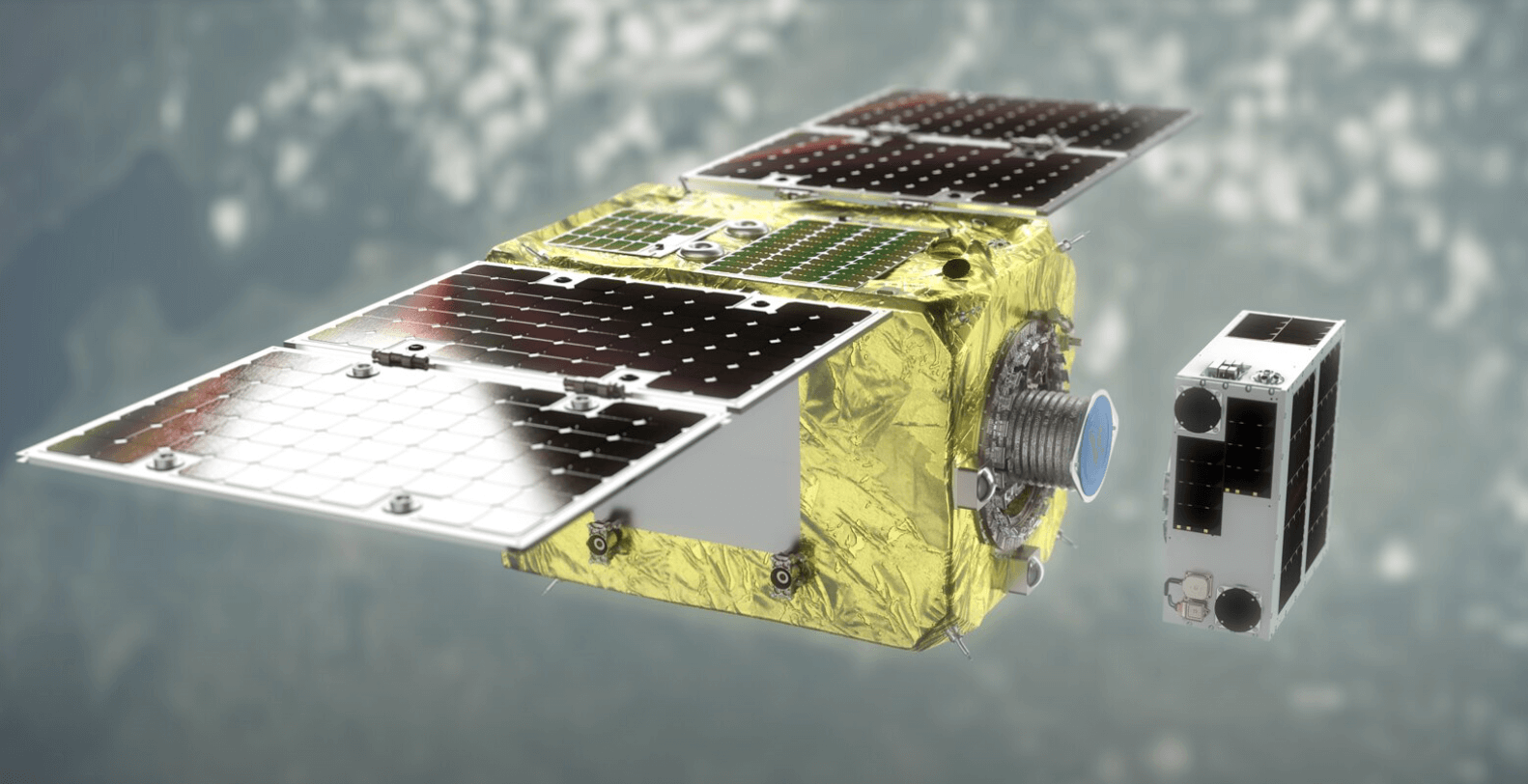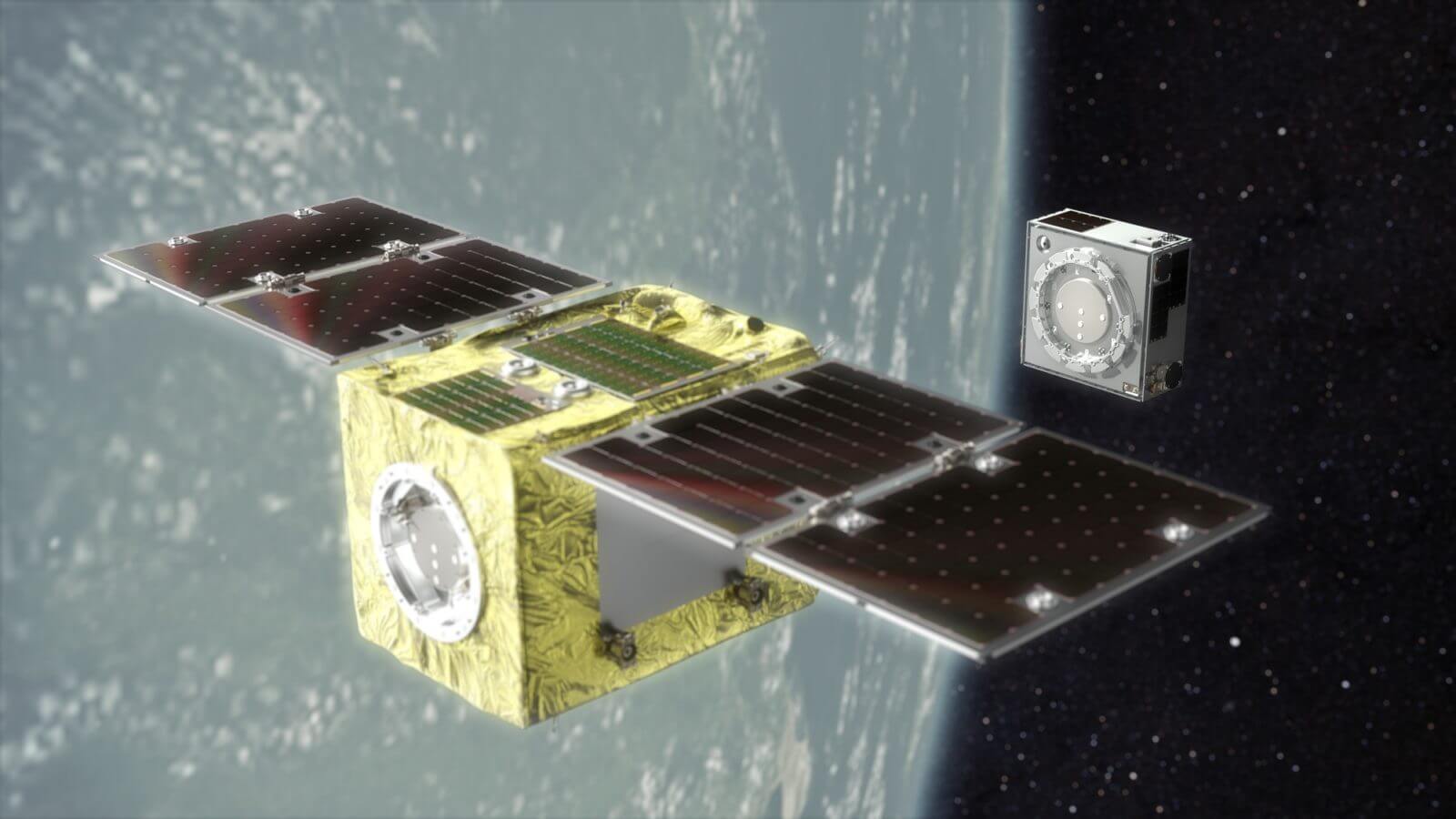ELSA-d, which was successfully launched into space during March 2021, consisted of two satellites: a service satellite (~ 175 kg) and a 'client' satellite (~ 17 kg) that simulates space debris, which were launched side by side. The service satellite was developed to safely remove pieces of space debris from orbit and is equipped with technologies that allow it to locate and safely connect to objects moving in space through a magnetic docking mechanism.

The space cleaning satellite ELSA-d (End-of-Life Services Astrosclae Demonstrator) of Astroscale, the market leader in the field of sustainability in space, successfully demonstrated its ability to capture objects in space, using a magnetic capture system developed by the company. The experiment was carried out last night, Wednesday, August 25.
A significant challenge in disposing of space junk (most of which is metallic), or providing services in space to a malfunctioning satellite, is the ability to locate, capture and attach to an object in space. The experiment that was crowned a success is proof of the programming of the core technologies needed to locate space junk, or an abandoned satellite in space and the capabilities of capturing and attaching to them.
ELSA-d, which was successfully launched into space during March 2021, consisted of two satellites: a service satellite (~ 175 kg) and a 'client' satellite (~ 17 kg) that simulates space debris, which were launched side by side. The service satellite was developed to safely remove pieces of space debris from orbit and is equipped with technologies that allow it to locate and safely connect to objects moving in space through a magnetic docking mechanism.
During the experiment, the sensors said to locate the target satellite were tested and the capture system designed to capture the object and hold it was put into operation. These capabilities are critical to the satellite's missions because they indicate the system's ability to capture and release a large number of objects in space, a move that will serve as the basis for service technologies for disposing of space junk or for removing malfunctioning and abandoned satellites from space.
During the experiment, the operations team on the ground examined the activity of the sensors and other systems. Astroscale reports on the extraction of valuable lessons from the first phase of the mission, which tested and verified the operation of multiple vital systems, which included a laser radar, a magnetic capture mechanism, a visible light camera and other systems and subsystems.

The success of the current phase of the mission paves the way for the rest of Astroscale's groundbreaking demonstration of space junk disposal. In the next phase of the experiment, the client's satellite will be placed at a greater distance, while testing built-in autonomous software systems in cooperation with telemetry processing from the ground. This part of the experiment will be completed in the coming months, after which a scenario (scenarios) will also be examined in which the client's satellite will be out of control and fly in uncontrolled space.
"This was a wonderful first step in verifying all the key technologies that enable the detection, encounter and capture of objects in space," he said Novo Okada, founder and CEO of Astroscale. "We are proud to take these first and challenging steps, and we continue forward with the vision of services in space with ELSA-d being just the beginning."
A subsidiary of Astroscale operates in Israel and is managed by Arya Helzband. The company focuses on developing innovative technologies to extend the life of satellites in space, and servicing satellites in orbit.
Illustrative video
More of the topic in Hayadan:
